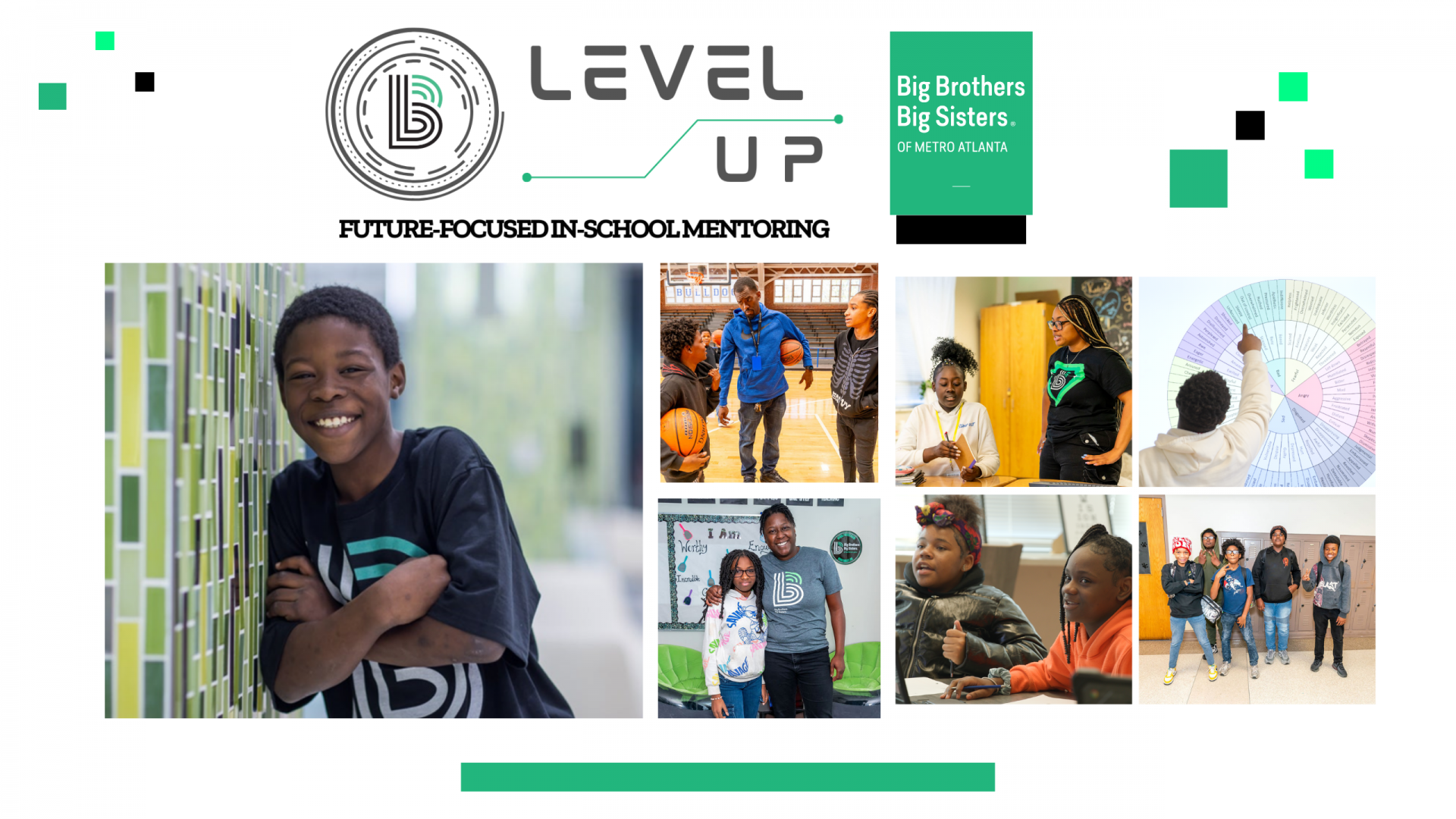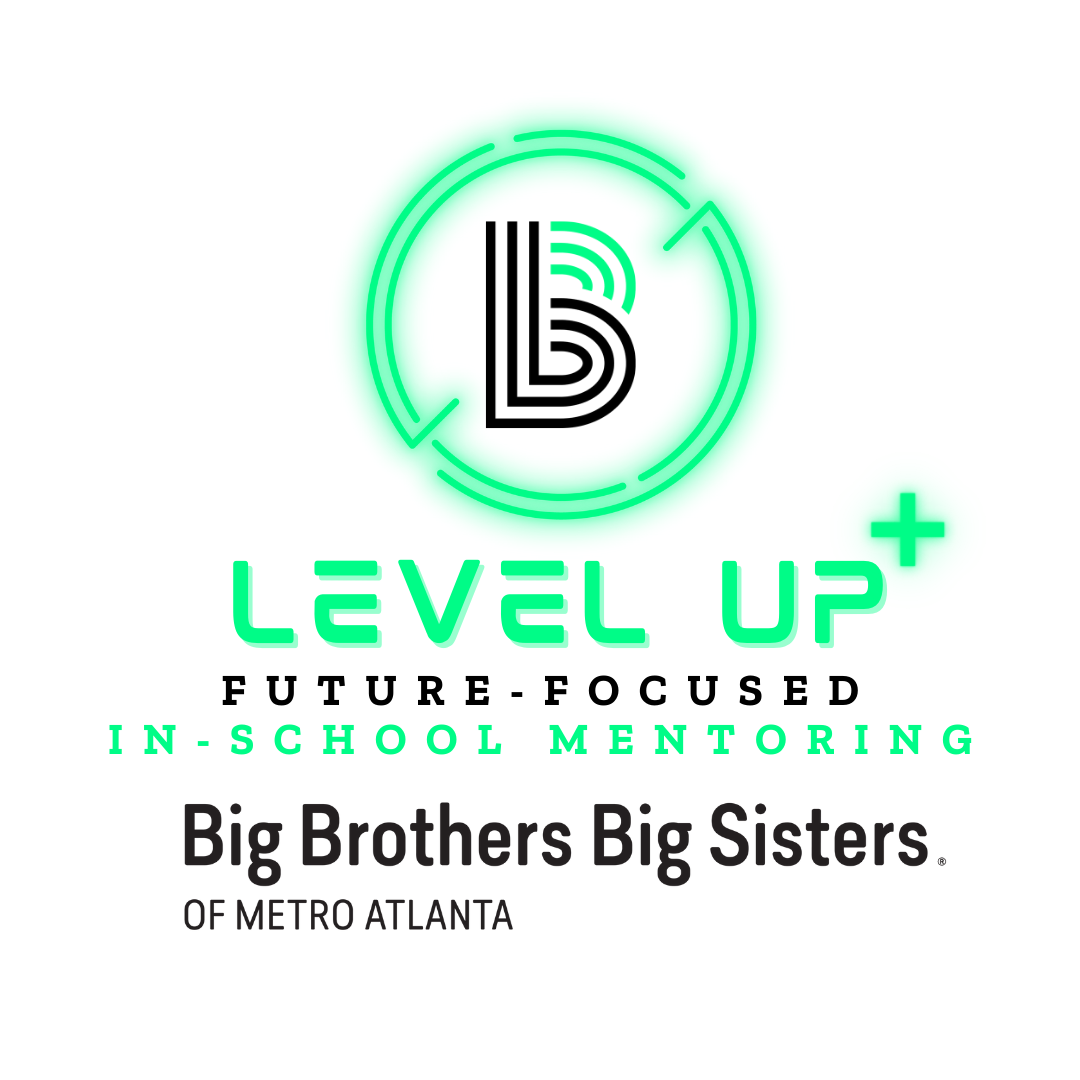Level Up: Future-Focused In-School Mentoring

Level Up: Large-scale mentoring program that utilizes paid mentors embedded full-time in middle schools.
- Created in response to the needs expressed by principals, counselors, and administrators for trained positive adult role models to provide consistent and direct mentoring for students who are exhibiting classroom disruptions, student conflicts and other behaviors at unprecedented levels.
- Designed to serve 100 students per grade at partner middle schools through small group and 1:1 mentoring.
- Partner schools: Jean Childs Young Middle School, Sylvan Hills Middle School, Bunche Middle School and H.J. Russell West End Academy in Atlanta Public Schools; Lithonia Middle School in DeKalb County; Jonesboro Middle School in Clayton County
- The Level Up Program served 1300+ Students at all 6 sites during the 24-25 School Year. Over the next 5 years, we expect to expand Level Up to serve 2700 students at 9 schools.
Current Partner Schools:
Ralph J. Bunche Middle School
Jonesboro Middle School
Lithonia Middle School
Russell West End Academy
Young Middle School
The mentors in the Level Up program are Big Brothers Big Sisters of Metro Atlanta employees called Lead Mentors. Their whole job is to be a mentor to youth! They are professionally and continually trained to provide the highest standard of mentorship and relationship-building with youth in the program.
Any student can enroll to be a Little (a mentee) at a Level Up School. The school team is on board for Littles to reach their full potential by meeting with their mentor during the school day at their designated time.
Each Lead Mentor leads several small groups of up to 5 Littles at time and some 1:1 sessions for other mentees. When Mentors and Littles meet, they're taking time to talk about their day, connect, build relational skills, and improve social-emotional connection. This all happens during the school day on a set schedule, similarly to how Connections work in a student's schedule.
Research and experience shows that mentorship leads to positive outcomes for youth, including a greater sense of belonging, having clear plans and ideas for their future, avoidance of risky behaviors, and improved social-emotional skills.


